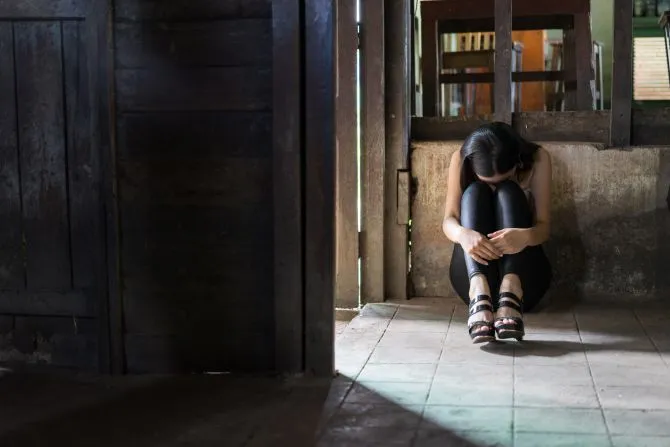Over half of all people living in modern slavery are in G20 countries, and these countries help fuel enslavement by importing products and supplies reliant on forced labor. Among G20 countries, India has 11 million people in modern slavery, China has 5.8 million people, Russia has 1.9 million people, Indonesia has 1.8 million, Turkey has 1.3 million, and the U.S. has 1.1 million people, according to the report.
Human trafficking and forced labor are closer to home than many Americans think. The Global Slavery Index warns that migrant workers in the agricultural sector in the U.S. and Canada are vulnerable to forced labor. The index cites the use of forced prison labor in American public and private prisons. Supply chains to the U.S. market are also at risk of using forced labor, the report says. Some U.S. visitors to the Caribbean help fuel “sex tourism” reliant upon the sexual exploitation and trafficking of minors.
The Global Slavery Index ranked countries’ governments on various factors related to modern slavery: how countries identify and support survivors; how criminal justice systems work to prevent modern slavery; governments’ anti-slavery coordination and accountability at the national and regional level; how countries address risk factors, social attitudes, and other institutions that enable modern slavery; and the extent to which government and business eliminate forced labor from the production of goods and services.
According to the index, the U.K., Australia, and the Netherlands have the strongest government responses to modern slavery, followed by Portugal and the United States. Government responses to modern slavery are weakest in Iran, Eritrea, North Korea, Somalia, and Libya.
The U.S. government’s response
(Story continues below)
The U.S. State Department in June released its latest Trafficking in Persons Report, which assesses countries around the world based on how their governments work to prevent and respond to trafficking. It ranks governments into three tiers according to whether they meet the “minimum standards” of the U.S. Trafficking Victims Protection Act. According to the report, the U.S. recognizes forced labor and sex trafficking as “two primary forms of trafficking in persons.”
“Every year millions of people are exploited within and across borders,” U.S. Secretary of State Antony Blinken said in a message introducing the report. “They are forced to work in factories for little or no pay; harvest crops; toil in terrible conditions in mines, construction sites, and fishing boats; or work in private homes. Many victims are exploited for commercial sex, adults and children alike.”
To maintain a Tier 1 ranking, governments must demonstrate “appreciable progress” against human trafficking each year. Tier 2 countries do not meet these minimum standards but are still making “significant efforts” to attain compliance. A Tier 2 watch list includes Tier 2 countries that are not proportionately responding to a significant number of trafficking victims, or a significant increase in the number of victims.
Tier 3 countries do not meet the U.S. legislation’s minimum standards and “are not making significant efforts to do so.” These Tier 3 countries may face some funding restrictions on foreign assistance at the determination of the U.S. president.
There are 24 governments ranked at Tier 3: Afghanistan, Algeria, Belarus, Burma, Cambodia, Chad, China, Cuba, Curacao, Djibouti, Equatorial Guinea, Eritrea, Guinea-Bissau, Iran, North Korea, Macau, Nicaragua, Papua New Guinea, Russia, Sint Maarten, South Sudan, Syria, Turkmenistan, and Venezuela.
Libya, Somalia, and Yemen are listed in a special category. Libya’s government lacks effective control over large amounts of territory, and its judicial system is not fully functioning since the 2014 overthrow of Moammar Qaddafi. The civil war and humanitarian crisis in Yemen hinder efforts to secure accurate information about trafficking there, while Somalia continues to face civil conflict and humanitarian crises.
State-sponsored trafficking is a problem in some countries. The State Department report faults 11 governments with a documented “policy or pattern” of human trafficking, trafficking in government-funded programs, forced labor in government sectors, sexual slavery in government camps, or the employment or recruitment of child soldiers. These governments are Afghanistan, Burma, China, Eritrea, Iran, North Korea, Russia, South Sudan, Syria, and Turkmenistan.
Blinken characterized the State Department report as “an immediate call to action.”
“Tackling a global problem like trafficking requires a global coalition, one that cuts across government, business, and civil society,” he said in his introductory message. “By sharing resources and information, we can better equip front-line stakeholders to track and respond to evolving trafficking trends. By partnering with survivors, we can better establish trauma-informed anti-trafficking policies and strategies. And by leveraging technology, we can better address the nexus between finance and human trafficking and better detect online exploitation.”
Kevin J. Jones is a senior staff writer with Catholic News Agency. He was a recipient of a 2014 Catholic Relief Services' Egan Journalism Fellowship.








